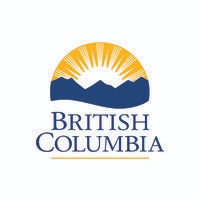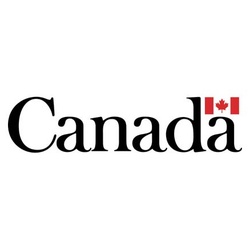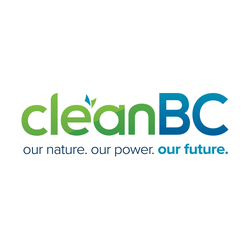
First Nations Clean Energy Business Fund — Equity Funding
At a glance
- Maximum amount : 500,000 $
- Closing date : April 30, 2024
- All industries
- British Columbia
- All legal structures
- All revenue ranges
- All organization sizes
- Indigenous Peoples
Overview
Get up to $500,000 in equity funding to support a financially viable and resourced clean energy project with an Energy Purchase Agreement.
Activities funded
The First Nations Clean Energy Business Fund provides funding for various capacity building and equity projects aimed at promoting clean energy initiatives within Indigenous communities in British Columbia.
- Community Energy Plans
- Pre-Feasibility and Feasibility Studies
- Training for Community Members
- Demand Side Management/Energy Efficiency
- Clean Energy Generation (small scale installation)
- Pre-Construction/Pre-Commercial Operational Date
- Investment in existing Independent Power Projects (IPP)
Eligibility
Fund eligibility criteria restricts applicants to Indigenous communities in British Columbia falling into specific categories, and the project must be located in B.C. and not currently have an active FNCEBF Capacity or Equity Funding agreement.
- A First Nation “band” as defined by the Indian Act (Canada)
- A First Nation governing body, representing exclusively one or more First Nations
- Project must be located in B.C.
- Applicants should not have a current active FNCEBF Capacity or Equity Funding agreement
Who is eligible?
Eligible entities for the First Nations Clean Energy Business Fund (FNCEBF) are restricted to Indigenous communities located in British Columbia. These communities must either be defined as a First Nation "band" under the Indian Act (Canada) or be a First Nation governing body representing exclusively one or more First Nations.
- First Nation “band” as defined by the Indian Act (Canada)
- First Nation governing body, representing exclusively one or more First Nations
Eligible expenses
Yes, there are eligible expenses for this grant. Below is a list of eligible activities and their associated funding limits:
- Community Energy Plans: up to $30,000
- Pre-Feasibility and Feasibility Studies: up to $50,000
- Training for Community Members: up to $50,000
- Demand Side Management/Energy Efficiency: up to $150,000
- Clean Energy Generation (small scale installation): up to $150,000
- Pre-Construction/Pre-Commercial Operational Date: up to $500,000
- Investment in existing IPP: up to $500,000
Eligible geographic areas
The eligible geographic zones for the grant are Indigenous communities in British Columbia. Applicants must be located within this region to qualify.
- Indigenous communities in British Columbia
Selection criteria
Yes, the evaluation and selection criteria for the First Nations Clean Energy Business Fund are present. Preference is given to applicants who demonstrate readiness, viability, and the potential to bring positive benefits to their communities.
- Can leverage matching equity funding from other funding sources.
- Demonstrate readiness and viability through completed feasibility studies, assessments, community energy plans, and/or community partnerships.
- Support clean energy developments in remote, off-grid, diesel dependent, or end-of-line communities.
- Demonstrate a strong emphasis on energy efficiency and/or greenhouse gas reductions.
How to apply
Complete all fields of the FNCEBF Clean Energy Capacity Funding Application or the FNCEBF Clean Energy Equity Funding Application, found on the First Nation Clean Energy Business Fund website. Applications must be submitted prior to the last day of the month of each intake period (listed below) to be considered for funding for that specified period.
Prepare supporting documentation to submit with FNCEBF Application, including:
- Band Council Resolution, Tribal Council Resolution or Directors’ Resolution approving the project;
- Additional supporting documents may include but are not limited to:
- Detailed financial analysis
- Material/Contractor quotes
- Relevant feasibility or planning work already completed
- Letters of support from Neighbouring communities or municipalities
- Total project budget (if requested FNCEBF funding is for part of larger project)
- Letter of Intent or proof of communication with BC Hydro if pursuing an Electricity Purchase Agreement
- Permitting or license (water/land tenure) documents
Email application template and supporting documents as complete application package to FNCEBF.MIRR@gov.bc.ca.
Applications will be reviewed, and decisions made based on the strength of their application and the viability relative to other applications.
All applicants will be notified of a funding decision within 90 days of intake date.
Applicants who are selected to receive Capacity or Equity Funding will be required to sign a contribution agreement to receive funding. A MIRR representative will contact the applicant to explain the terms and conditions in the contribution agreement. The contribution agreement will include:
- a schedule of actual expenditures of the Capacity Funding; and
- deliverables to be submitted, reviewed and approved in order to initiate payments.
Once the funding has been approved, payment will typically occur within thirty business days of signing a Contribution Agreement. Interim payments may also be provided throughout the project as interim deliverables are received and approved by the Province, and there will be a holdback for final payment capacity funding of up to 25%.
Additional information
Frequently Asked Questions about the First Nations Clean Energy Business Fund — Equity Funding Program
What is the First Nations Clean Energy Business Fund — Equity Funding?
How much funding can be received?
Who is eligible for the First Nations Clean Energy Business Fund — Equity Funding program?
What expenses are eligible under First Nations Clean Energy Business Fund — Equity Funding?
Who can I contact for more information about the First Nations Clean Energy Business Fund — Equity Funding?
Where is the First Nations Clean Energy Business Fund — Equity Funding available?
Is the First Nations Clean Energy Business Fund — Equity Funding a grant, loan, or tax credit?
More programs like this

Regional Tariff Response Initiative (RTRI) — British Columbia
Government of Canada
Business Scale-up and Productivity in British Columbia
Pacific Economic Development Canada (PacifiCan)
Innovate BC — Ignite Program
Innovate BC
CleanBC — Custom Program
CleanBC
Small Business BC — Workplace Accessibility Grant
Small Business BC
Genome British Columbia — Data Access, Integration and Analysis Program (DAIA) 2
Genome British Columbia
Genome British Columbia — GeneSolve Program
Genome British Columbia
Genome British Columbia — Sector Innovation Program
Genome British Columbia
Genome British Columbia — Genomics Innovation Fund – Intake 002
Genome British Columbia